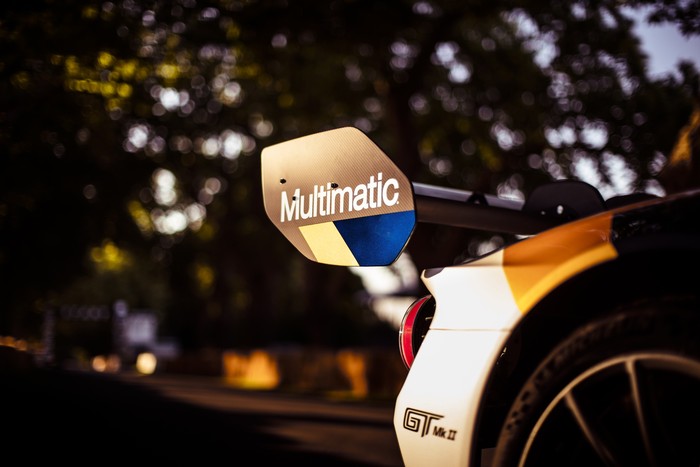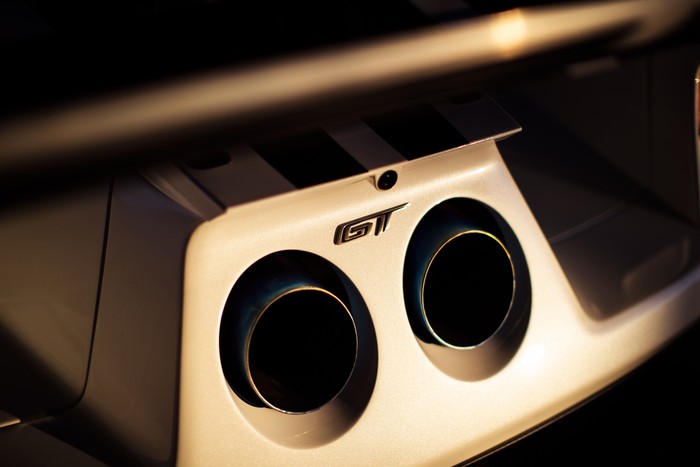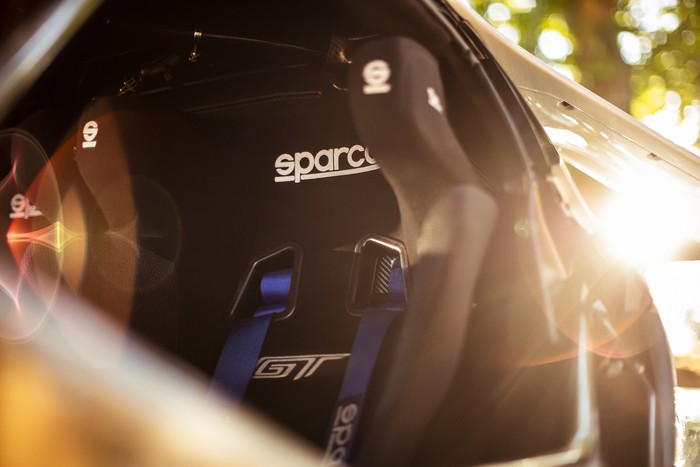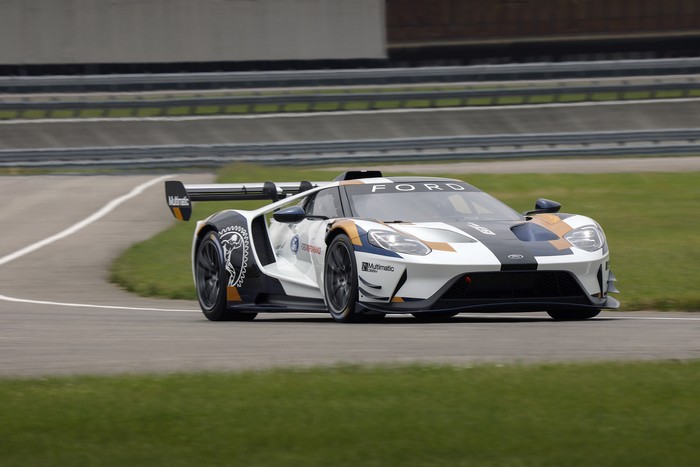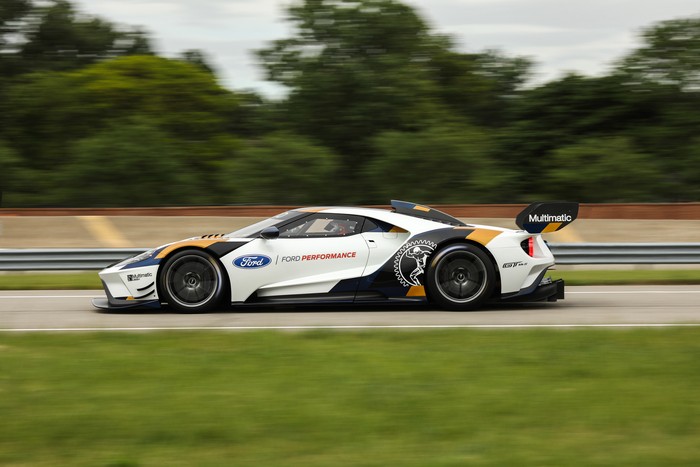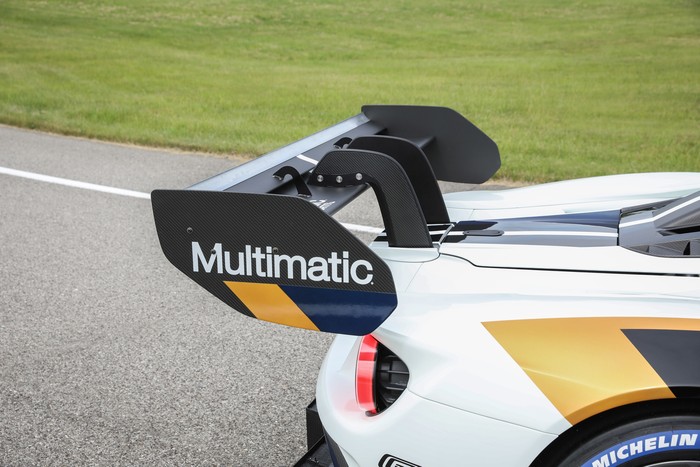

Ford's 700-hp GT Mk II is unconstrained by homologation requirements
45 examples of the track-only model will be made.
Ford took the born-again GT to Le Mans for the last time in 2019. Its career as a factory-backed racer is almost over, so the Blue Oval's Performance division teamed up with Multimatic to explore what the carbon fiber-bodied supercar is capable of when it doesn't need to comply with race regulations. The GT Mk II made its debut at the Goodwood Festival of Speed.
"The road car is obviously limited by the many global homologation requirements that it must comply with, and the race car suffers from the restriction of the dreaded Balance of Performance, resulting in it being 150 horsepower down to the road car. The Mk II answers the regularly-asked question of how would the car perform with all the limitations lifted: the answer is spectacularly," said Larry Holt, Multimatic's chief technical officer, in a statement.
Ford Performance wanted to push every boundary, so engineers knew from the get-go that the Mk II wouldn't be street-legal. It received an evolution of the standard car's twin-turbocharged, 3.5-liter EcoBoost V6 tuned to generate 700 horsepower, 200 more than the race car and about 50 more than the road car. The mid-mounted six shifts through a seven-speed dual-clutch automatic transmission. Water spray technology prevents the charge air cooler from getting too hot, while carbon ceramic brakes keep the power in check. Ford hasn't released performance specifications.
The suspension has been modified, too; it's been made simpler. Ford saved 200 pounds by tossing out the hardware needed to adjust the GT's ride height. The Mk II sits a little bit lower than stock, and it comes with adjustable shock absorbers, but its ride height is fixed and there is no drive mode selector.
The model-specific body kit provides 400 percent more downforce, according to Ford, but the changes don't stop there. Inside, the Mk II gained a Sparco racing seat with a six-point racing harness for the driver. Buyers who want a passenger seat will need to pay extra for one. Because it's purely a track car, the GT Mk II comes with a data acquisition system that saves data from each run.
Ford Performance will make 45 examples of the GT Mk II. Each one is priced at $1.2 million before options are factored in. That figure makes the Mk II over twice as expensive as the standard GT, but its exclusivity and its no-holds-barred character ensure it's a future classic that will gain value in the coming years.




